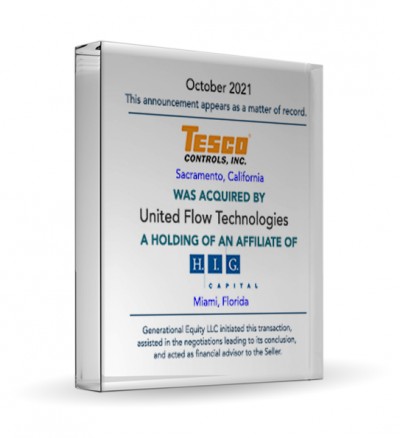
The Baby Boomer Impact on M&A
By Generational Equity
04/10/2013
Last year, especially towards the end of the year, the primary catalyst in middle-market M&A activity was the drive to close deals before year-end to avoid the impact of the increase in capital gains taxes on January 1, 2013. Generational Equity saw this first hand as we closed more deals in December than ever before as our clients rushed to complete their transactions in advance of the cap gains increase.
Now a new trend has emerged, one that most likely will drive M&A activity for some years to come: Baby-boomer business owners are hitting retirement age, creating what can be called the baby boomer impact.
This baby-boomer retirement trend was documented in a recent survey conducted by the IBBA (International Business Brokers Association), The M&A Source, and Pepperdine Private Capital Markets Project. The data was gathered from M&A advisors during the fourth quarter of 2012, and the results indicate that these professional advisors expect the baby boomer retirement boom to fuel M&A activity for several years. This is how the report described the data:
“For the first time, baby-boomer retirement was the number one reason driving business sales across all Main Street and lower middle market sectors. The second most common reason was burnout for Main Street and family issues for the lower middle market. (Previous 2012 studies showed that potential tax increases were the top sale driver for businesses valued over $5 million.)”
Based on the forecasted trends, the continual retirement of baby boomers will have a huge impact on the motivation of business owners for years to come. Here are some statistics to back up the enormity of the baby boomer impact:
- Approximately 40% of family-owned businesses in the United States are expected to experience a leadership change in the next five years due to baby boomer retirements.
- An estimated 65 percent to 75 percent of the small companies in the U.S. – some 10 million – will likely hang up a "for sale" sign during the next 10 years, according to Inc. magazine.
- Some sources estimate that almost $5 trillion in liquidity is expected to be created by 2015 as aging baby boomers transition out of their closely held businesses to retirement.
- Research from the Pew Research Center indicates that the oldest of America’s baby boomer generation started turning 65 on January 1, 2011, at a rate of 10,000 people a day — a trend that will last for the next 19 years.
- More than half of middle-income boomers (55%) have saved less than $100,000 for retirement, according to the Center for a Secure Retirement. One-fifth (19%) have saved less than $10,000.
Ramifications of the Baby Boomer Impact for Business Owners
This data is compelling and also troubling. If you are a business owner contemplating the sale of your company during the next 5-10 years, you may want to revisit your planned exit timing since the law of supply and demand may impact your valuation in that timeframe.
Quite frankly, what most M&A folks fear most of this baby boomer impact is the potential glut of businesses hitting the market, which may overwhelm the supply of active buyers. When and if that tipping point may occur is anyone’s guess. The reality is if you do have a business that you plan to transition from, it is vital that you plan ahead and develop an exit strategy and timeframe that matches your needs and considers the timing of market trends.
Your key first step in protecting the legacy of your business is learning as much as you can about how to exit your business for the most profit. To do so, I recommend that you attend a Generational Equity seminar on this topic. An investment of a few hours of your time will equip you with the knowledge needed to begin planning for your future. If you would like to learn more, please give us a call at 972-232-1121 or fill out a contact form and we will reach out to you in order to determine if your company is a good match for our services.
Bottom line: Be keenly aware of the baby-boomer retirement wave and the potential impact on your ability to find optimal buyers for your company. Don’t make the assumption that your business is unique enough to stand out during the pending business owner retirement wave.
Carl Doerksen is the Director of Corporate Development at Generational Equity.
© 2013 Generational Equity, LLC All Rights Reserved



